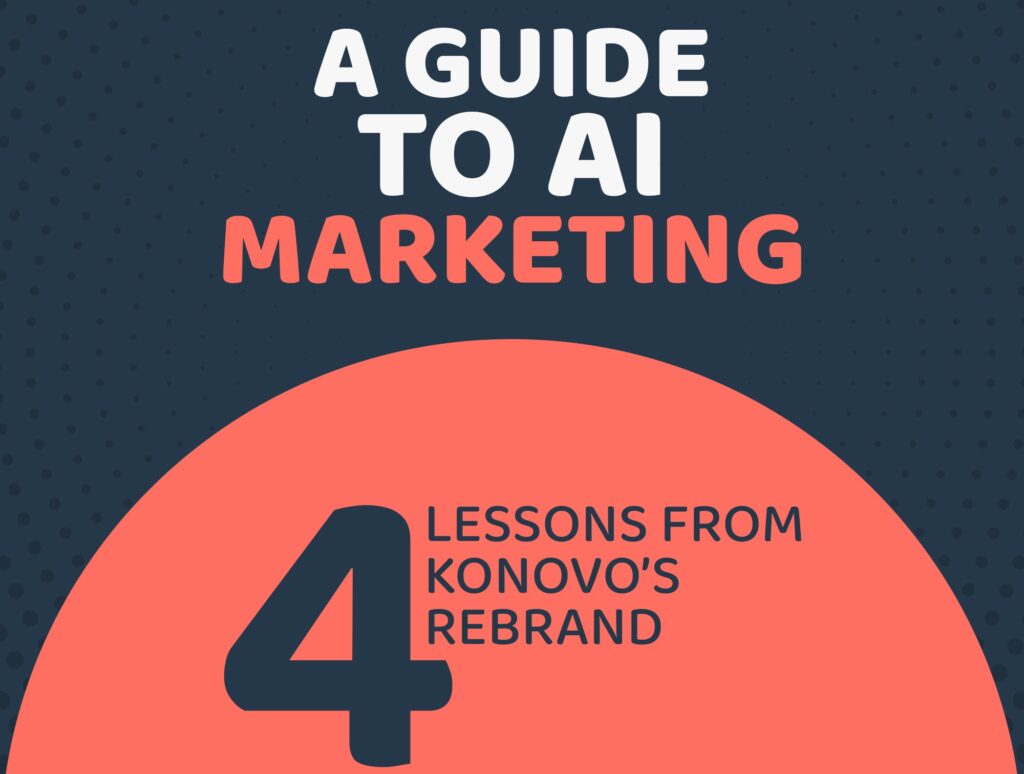Qualitative research has always been about understanding the people behind the data. But in healthcare, where timelines are tight and decisions carry real-world impact, researchers need faster ways to get to those insights.
In a recent Biopharma Dive webinar, Konovo’s Tamara Burke and Erica Jacobson joined Ken McLaren of Frazier Healthcare Partners to share how AI is helping research teams move faster without losing the depth and rigor that pharma demands. Here are the top takeaways from the webinar.
AI Is an Essential Research Tool
In the past year, AI has shifted from a curiosity to becoming a critical part of research workflows. Medical researchers and MRAs are no longer asking if they should integrate AI. They’re asking where to start.
“There was skepticism at first,” said Burke. “Fast forward a year, and people are dipping their toes in, seeing the benefits, and coming back for more.”
Qualitative AI tools like transcription, moderation, and real-time analysis are helping research teams:
- Eliminate manual friction points.
- Shorten turnaround times.
- Support faster business decision-making.
What’s driving this shift? Researchers face growing pressure to deliver strategic insights faster—without losing the rigor that makes them meaningful. In healthcare, that means preserving context, nuance, and trust. Qualitative AI helps remove manual bottlenecks, turning lengthy interviews and long analysis cycles into faster, more actionable outcomes.
AI and Human Expertise Work Better Together
Despite its speed, AI isn’t replacing researchers; it’s amplifying their work. Qualitivate AI automates routine tasks like transcription and thematic analysis, freeing researchers to focus on what matters most: interpretation and strategic guidance.
“Qualitative research gives us the ‘why’ behind the data,” Jacobson explained. “By combining AI-powered tools with human analysis, we can deliver deeper, more actionable insights faster.”
The key is balance. As McLaren noted, “AI can now reason and participate in real-time conversations, but it still needs to be grounded in high-quality, pharma-grade research context to deliver what decision-makers expect.”
Early Adoption Builds Confidence and Momentum
For teams just starting to integrate AI into their qualitative workflows, the panelists recommended a stepwise approach.
Begin with AI transcription or sentiment analysis. Then explore AI-moderated interviews alongside human moderators, comparing results to build confidence.
“Be brave and don’t get left behind,” Burke encouraged. “Start small if you need to—but start. This isn’t slowing down.”
The most important step is to focus on the research objective first, then use technology to get there more efficiently. As Jacobson shared, “It’s about answering the right business questions, not using tech for tech’s sake.”
Healthcare-Ready AI Requires Privacy and Trust
As AI adoption grows, so do questions about data privacy and compliance, especially in healthcare. The discussion emphasized the importance of using AI tools designed specifically for pharma-grade market research, with clear data security practices and compliance built in from the start.
Konovo’s QualAI offering was purpose-built with these needs in mind, ensuring researchers can harness AI while maintaining the highest standards of privacy and rigor.
QualAI: The Latest Innovation from Konovo
QualAI is the newest addition to the Konovo intelligent platform, designed to help life science researchers and MRAs uncover insights faster and with greater confidence. It combines the power of AI-driven qualitative analysis with Konovo’s healthcare-focused research ecosystem, removing barriers to understanding and helping teams move with agility.
The future of qualitative research is not just faster. It’s smarter, more connected, and ready to meet the demands of today’s healthcare market.




